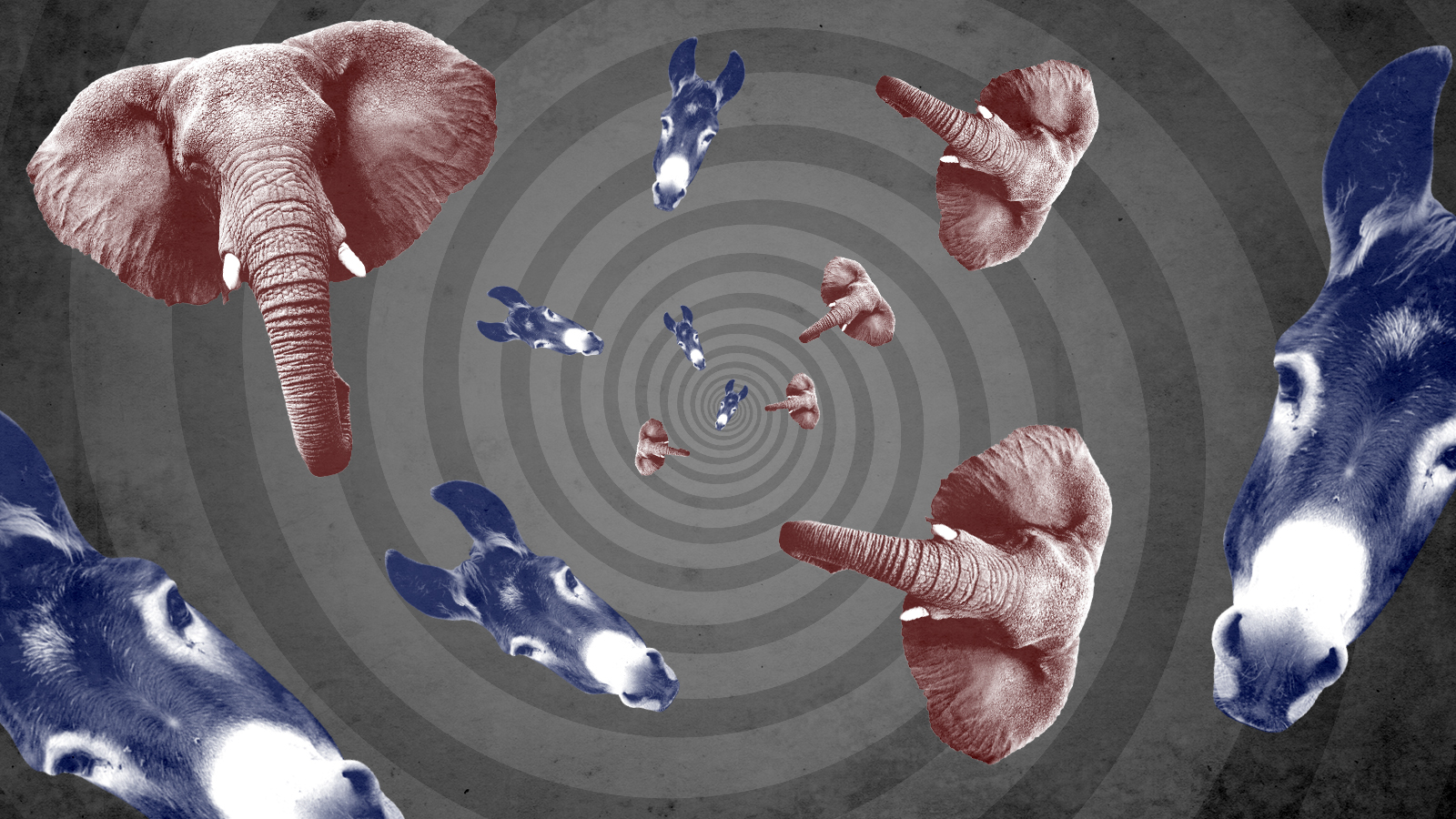Democrats and Republicans' wearying waiting games


A free daily email with the biggest news stories of the day – and the best features from TheWeek.com
You are now subscribed
Your newsletter sign-up was successful
Republicans have inched ahead in the generic ballot, according to the Real Clear Politics polling average. These surveys measure which party voters prefer to see control Congress after November's midterm elections.
The midterms have often delivered sharp rebukes to the White House and brisk reversals in partisan average. Two years after Bill Clinton won the presidency and ushered in three-fifths majorities in both houses of Congress, Republicans erased those majorities, gaining 52 seats in the House. Barack Obama's election in 2008 helped Democrats win even bigger majorities. Two years later, Republicans added 63 House seats.
Republican losses in the midterm elections of 2006 and 2018 foreshowed unified Democratic control of the federal government's elected branches. But voters ultimately turned against what Democrats did with that control. We've repeatedly seen blue waves followed by red ones, claims of permanent Democratic or Republican majorities refuted within an election cycle or two.
The Week
Escape your echo chamber. Get the facts behind the news, plus analysis from multiple perspectives.

Sign up for The Week's Free Newsletters
From our morning news briefing to a weekly Good News Newsletter, get the best of The Week delivered directly to your inbox.
From our morning news briefing to a weekly Good News Newsletter, get the best of The Week delivered directly to your inbox.
But this change has increasingly made the parties more resistant to changing themselves. All they now need to do is wait for the party in power to become unpopular and the voters will have no choice but to vote them back in again.
That's why Democrats are shining a bright light on Donald Trump's influence over the GOP — they are trying to remind the electorate about what it disliked about Republicans that made them hand the White House to Joe Biden in the first place. But it is not clear that when weighed against inflation, border insecurity, violent crime, and the third year of the pandemic if this will be good enough.
Democrats — who were, if anything, to the left of the ones voters rejected in 2010, 2014, and 2016 — won power, however narrowly, because the alternative was Trump. Some of these Democrats may be replaced by just-as-Trumpy Republicans because they are the only other option.
The biggest exception was Clinton, who sought to systematically address the Democrats' weaknesses on crime, welfare, and values during the 1990s. There is also a slight degree to which Trump distinguished the GOP from its George W. Bush-era incarnation, though he clearly added some new baggage of his own.
A free daily email with the biggest news stories of the day – and the best features from TheWeek.com
But the end result of the past five years of political tumult could continue the polarization as too-woke Democrats and low-brow populist Republicans turn off vast swathes of the country, each side yet waiting for the other to screw up.
W. James Antle III is the politics editor of the Washington Examiner, the former editor of The American Conservative, and author of Devouring Freedom: Can Big Government Ever Be Stopped?.
-
 The 8 best TV shows of the 1960s
The 8 best TV shows of the 1960sThe standout shows of this decade take viewers from outer space to the Wild West
-
 Microdramas are booming
Microdramas are boomingUnder the radar Scroll to watch a whole movie
-
 The Olympic timekeepers keeping the Games on track
The Olympic timekeepers keeping the Games on trackUnder the Radar Swiss watchmaking giant Omega has been at the finish line of every Olympic Games for nearly 100 years
-
 Kurt Olsen: Trump’s ‘Stop the Steal’ lawyer playing a major White House role
Kurt Olsen: Trump’s ‘Stop the Steal’ lawyer playing a major White House roleIn the Spotlight Olsen reportedly has access to significant US intelligence
-
 Japan’s Takaichi cements power with snap election win
Japan’s Takaichi cements power with snap election winSpeed Read President Donald Trump congratulated the conservative prime minister
-
 Big-time money squabbles: the conflict over California’s proposed billionaire tax
Big-time money squabbles: the conflict over California’s proposed billionaire taxTalking Points Californians worth more than $1.1 billion would pay a one-time 5% tax
-
 Did Alex Pretti’s killing open a GOP rift on guns?
Did Alex Pretti’s killing open a GOP rift on guns?Talking Points Second Amendment groups push back on the White House narrative
-
 Washington grapples with ICE’s growing footprint — and future
Washington grapples with ICE’s growing footprint — and futureTALKING POINTS The deadly provocations of federal officers in Minnesota have put ICE back in the national spotlight
-
 Trump’s Greenland ambitions push NATO to the edge
Trump’s Greenland ambitions push NATO to the edgeTalking Points The military alliance is facing its worst-ever crisis
-
 How realistic is the Democratic plan to retake the Senate this year?
How realistic is the Democratic plan to retake the Senate this year?TODAY’S BIG QUESTION Schumer is growing bullish on his party’s odds in November — is it typical partisan optimism, or something more?
-
 Why is Trump threatening defense firms?
Why is Trump threatening defense firms?Talking Points CEO pay and stock buybacks will be restricted
